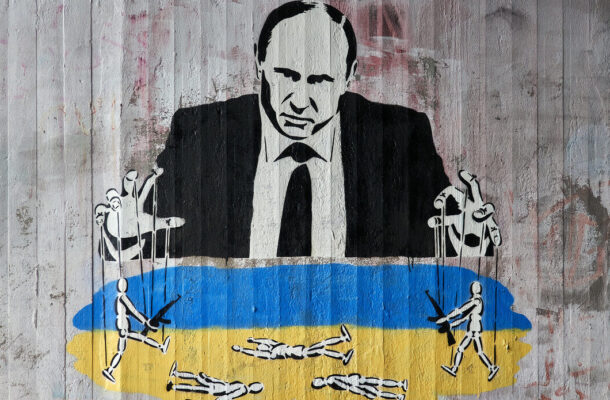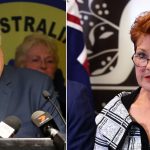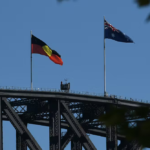King rat

As the Ukrainian war continues to drag, experts have pointed to a likely recession in Russia. However, this analysis misses Putin’s grand strategy for his power legitimacy, which may ironically end his reign.
When the classic film “The Irony of Fate” plays this New Year’s Eve in Russia, a tradition in almost all former USSR republics, I wonder if Putin will stare at the movie title blankly, just for a second. The hospitality and welcome that Putin expected from the Ukrainians never appeared in Russia’s invasion, but instead only a globally admired and hardcore resistance. From now on, Ukrainians will become much prouder of their nation, rather than being easily confused for Russians by uncertain foreigners. Not only did Putin’s identity politics in Ukraine backfire, but his overarching goal of halting NATO’s expansion also looks increasingly unlikely — Finland and Sweden, once neutral buffers, have both applied for NATO membership.
Ironically, despite Western sanctions, energy prices have spiked, and Russia’s exports have been doing extremely well. According to the Economist, Russia’s trade surplus is anticipated to break records at US $250 billion in the following months, more than double the 2021 record, which will help Putin continue to fund his war. As for the devastating impact on Russia’s imports, and locals’ daily life, some analysts argue that this simply needs another splendid show of Putin’s propaganda apparatus to brainwash the Russian population into the necessity of the war, as happened in the 2014 Crimea Crisis.
However, behind the scenes, the fundamental question is not that of Putin’s dis/misinformation trick but one of the legitimacy of his power. Dating back to his first two terms of presidencies and premierships from 1999 to 2012, Putin faced a mess left by the disintegration of the Soviet Union and Yeltsin’s chaotic governance. At that time, what Russians yearned for the most was a sense of stability, and economic recovery, which Putin successfully provided by centralising the nation’s power.
Briefly, the launch of the second Chechen war, and creation of the seven federal districts led by Putin-appointed presidential plenipotentiaries combated separatism and defended Russia’s unity. The battle against oligarchic meddling, and the change of local leaders’ election methods strengthened the Kremlin’s authority. Fortunately, soaring energy prices helped Russia’s economic healing.
However, these successes have come at the cost of the democracy which Yeltsin endeavoured to establish. Russian citizens’ voting rights in the 85 federal constituent entities were quietly removed. The principle of federalism, which was enshrined in Russia’s 1993 constitution, was significantly undermined. Russia, in fact, reverted to its historical track as a centralised unitary state. Nevertheless, the regained social order has still lingered in older Russian voters’ memories with a bitter taste left from Yeltsin’s democracy, and an honoured reminiscence of the Russian empire, providing a veil of legitimacy for Putin’s power.
After 2011, when energy prices and the Russian economy were in a downturn, Russian protests against Putin’s reign arose. Incapable of improving Russians’ living standards and unwilling to democratise Russian society, Putin’s legitimacy strategy is no longer to offer public goods, but to rebuild the Russian empire’s glory by being more involved on the international stage, albeit in a destructive way.
Putin may not wind back the post-Cold War order and reclaim Russia’s former grandeur, as the Russian economy has de facto been a marginal man of globalisation. But as Russia expert Bobo Lo argued, “Putin would rather have a global disorder where Russia is central, than an order where it is peripheral.” The drum of Russian nationalism has been beaten by Putin in Russians’ minds: what the West has taken from Russia should be returned, and the historical indignity should be expunged.
As for the plummeting income of Russian citizens, quite counterintuitively and ironically, this outcome is even better for Putin’s supremacy. According to Russian economist Vladislav Inozemtsev, there are no precedents for serious social mobilisation due to economic concerns in Russia. Unlike the West, China and many other countries, economic prosperity is perceived as an element of power legitimacy. However, when the Russian penniless find diverse market products, they realise their political system works and mostly blame their own inability to make a living. In Russia, poverty is more of an “individual” situation, rather than a public phenomenon.
Novaya Gazeta, one of a few Kremlin-disliked independent Russian newspapers, argued that by taking away the vitality of Russians, poverty extinguishes political protests. Political rights are remembered when the standard of living is higher, and then political demands appear. Similarly, BBC Russian reported that in Arab countries, poor students and outcasts took to the streets to protest, whereas in Russia, it was only the wealthy middle class who protested in street demonstrations. Therefore, ironically enough, Putin may have tightened his control over Russia by impoverishing Russians.
However, as a result, another even larger irony has appeared: The Russian army, once a globally respected and Putin-flaunted military force, has been bogged down in its onslaught of Ukraine. Herman Gref, former Minister of Economics and Trade of Russia, argued that Russia has lost the competition in the new technological revolution, sinking into a “down-shifter” country that is unable to pursue material wealth. It is not the first day that an increasing amount of Russian tech workforce and intellectuals have been fleeing away.
But Putin won’t care less, even though he probably knows a deliberate and excessive overstretch of domestic strength is not sustainable in the long run. After all, in his mind, his primacy matters the most. His power hubris, indulgence in the historical magnificence and self-claimed permanent victory is ironically like a replay of his deeply missed overextending Soviet Union, which may eventually end in its own demise.
This article was published by the Australian Institute for International Affairs.
Jon Yuan Jiang is a PhD candidate at the Queensland University of Technology, a graduate from the Moscow State Institute of International Relations, and a Russian and Mandarin speaker. He is and a delegate of the Australia-based Australia China Youth Dialogue and a Young Leader of the US-based Pacific Forum.












